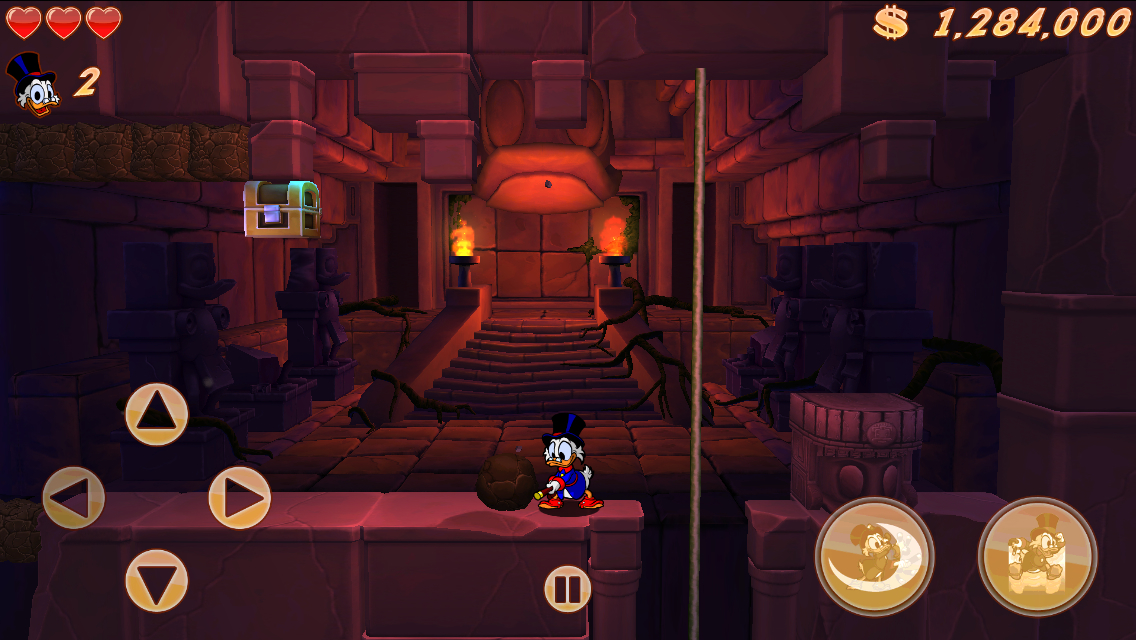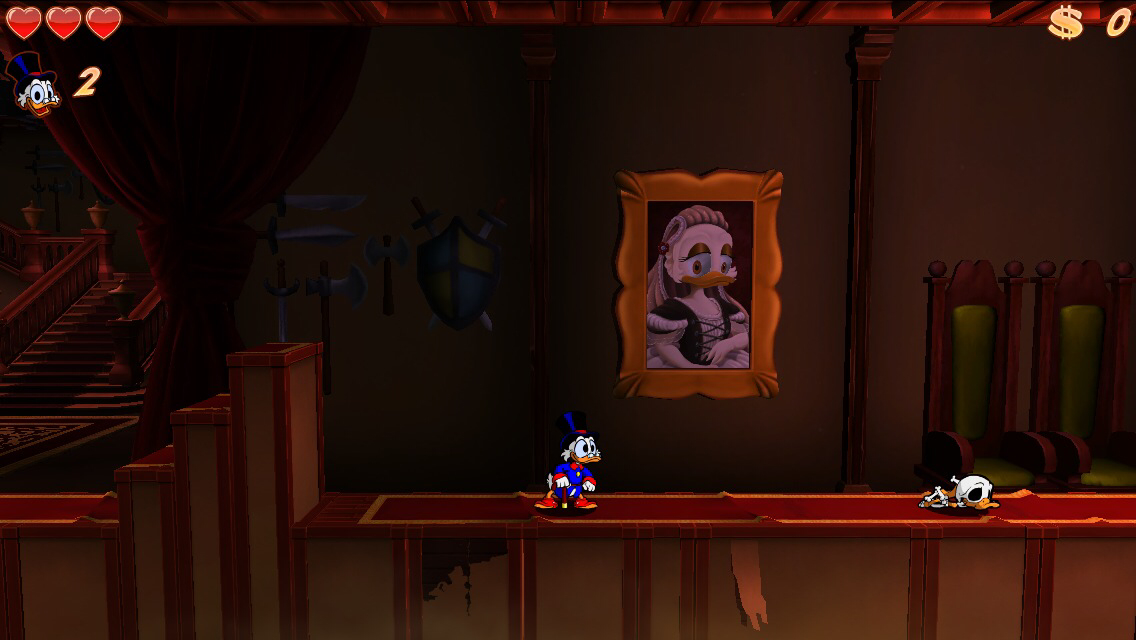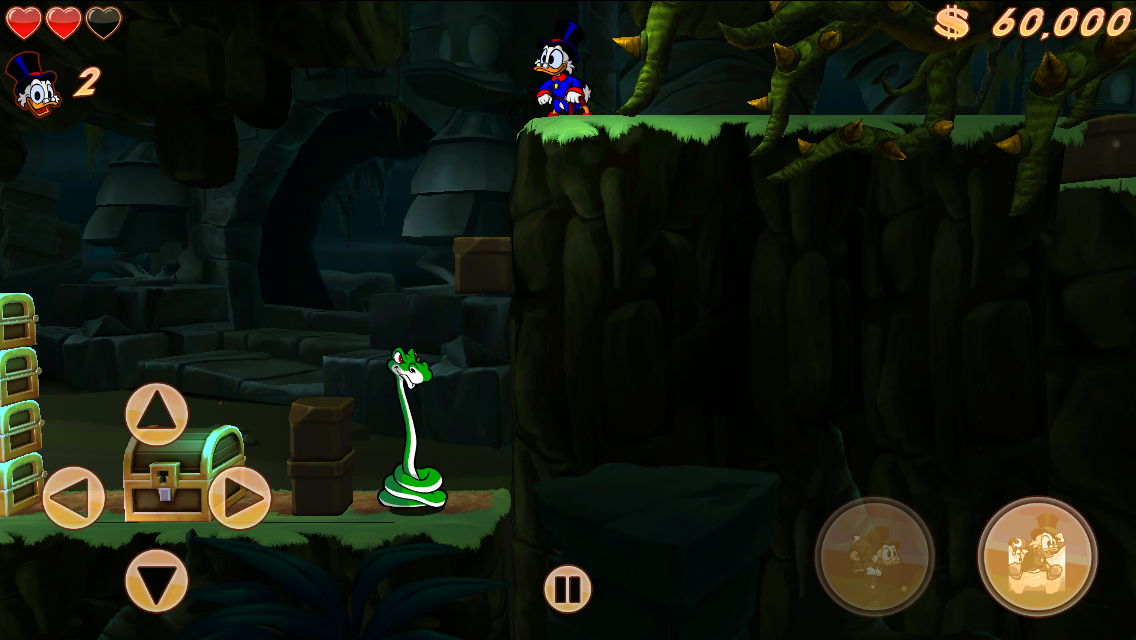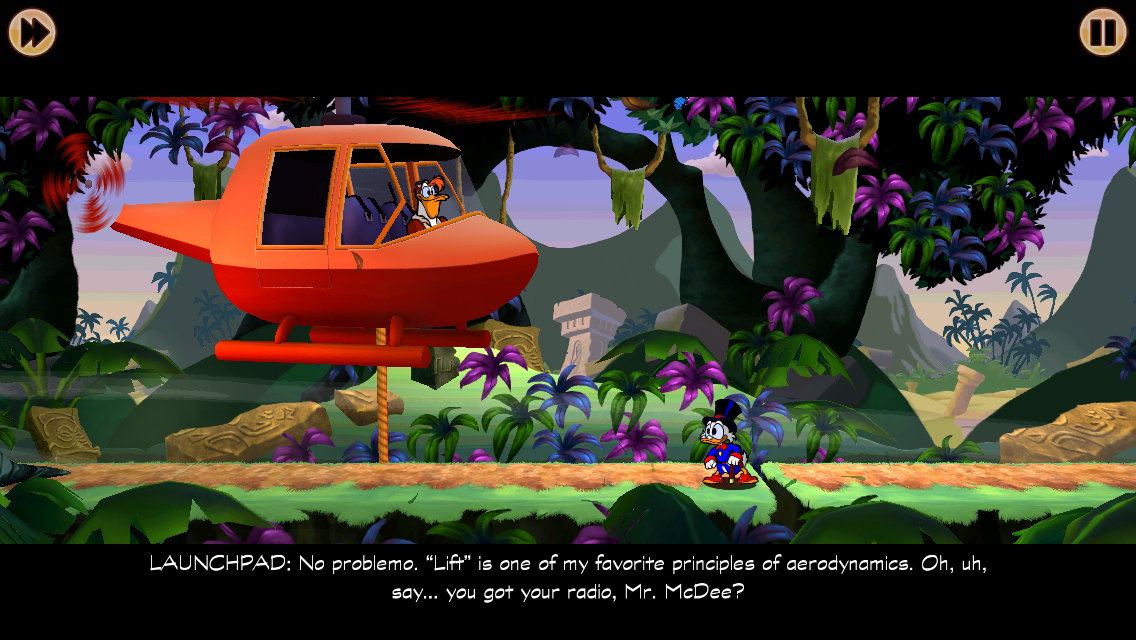![]() Nostalgia is definitely big business, as the movie industry has known for decades and the game industry only just started catching on to. It’s a tricky thing, nostalgia. Some people like to hand wave it away, as though the positive feelings from a familiar situation are any less valid than the positive feelings from seeing a bit of visual spectacle. I strongly disagree with that notion. I think nostalgia is a wonderful thing, and if a game can use it effectively the result is almost always a better all-around experience. That’s a big qualifier, though. A game that relies solely on nostalgia is as empty as one that relies solely on graphical flair. Nostalgia only works for the audience that was there at the time. For everyone else, you’d better make sure the rest of the game can support its own weight.
Nostalgia is definitely big business, as the movie industry has known for decades and the game industry only just started catching on to. It’s a tricky thing, nostalgia. Some people like to hand wave it away, as though the positive feelings from a familiar situation are any less valid than the positive feelings from seeing a bit of visual spectacle. I strongly disagree with that notion. I think nostalgia is a wonderful thing, and if a game can use it effectively the result is almost always a better all-around experience. That’s a big qualifier, though. A game that relies solely on nostalgia is as empty as one that relies solely on graphical flair. Nostalgia only works for the audience that was there at the time. For everyone else, you’d better make sure the rest of the game can support its own weight.
DuckTales Remastered ($4.99) casts its nostalgia net a little bit wider than most. There’s a genuine fondness among a very specific age group for the original series the game is based on, of course. You could walk up to these people and say “DuckTales!" and count on them replying immediately with “A-woo-woo!" at a near one-hundred-percent rate. The show was only around for a short time in the grand scheme of things, though, so I’m not sure if that audience is terribly big. Certain elements like Scrooge McDuck and Donald’s nephews are a regular part of the wider Disney universe, so that helps. There’s another audience they’re playing to here, however, and it’s one of which I would count myself a part.

I don’t have any special fondness for the DuckTales animated series. I was always more of a Darkwing Duck kind of guy. If a rerun of DuckTales is on TV, I’ll probably watch it, but when I was younger, it held little interest for me. That made Capcom’s NES platformer based on a show a bit of a hard sell for me back in the day, but after hearing a lot of praise and some whispers that it shared some resemblance to my beloved Mega Man, I gave it a rental. I ended up enjoying the game a lot, largely thanks to its unique mechanics and the replay value afforded by its multiple endings. Its excellent presentation wasn’t surprising coming from the Capcom of that era, and it sure didn’t hurt. The visuals had a lot of detail and charm, and the soundtrack was simply amazing. When I moved clear across the world and had to rebuild my classic library, one of the first cartridges I picked up was DuckTales.
DuckTales Remastered is without a doubt a nostalgia trip. For fans of the show and characters, it’s something of a dream come true. The IP is generally dead and buried these days, so I doubt anyone expected the cast to reassemble and contribute their voices to anything new. I’m sure Terry McGovern near fell out of his chair when he got the phone call to voice Launchpad McQuack again. Just getting to hear Alan Young, now 95 years old, voice Uncle Scrooge again is a real treasure. Most of the cast appears in this remake somewhere, even if they weren’t in the original game, and it’s amazing how comfortable they sound settling into these roles that have gone untouched for more than 20 years. The game’s graphics have obviously been completely redone by the sprite maestros at WayForward Technologies, and while the original game was no slouch for its time, this version looks like the cartoon come to life. There are a plethora of new fully-voiced cut scenes that aim to hammer the game’s story into something coherent. DuckTales fans should be quite pleased.

That’s a good thing, but let’s not fool ourselves. This remake exists because of the massive cult following the game developed over the years. Its reputation did not grow on the back of the license, but on the rock-solid gameplay and overall excellent package the game represents. That level of appreciation sometimes covers up flaws in the game, and the few points where the original DuckTales falters are often glossed over in hindsight. The game is a bit too short and breezy, never more obvious than the shortcut it takes for the last stage of the game. It’s terrific fun to replay, but it was definitely the sort of game that you could get by on renting now and then. There were lots of interesting secrets to find, but they only ever contributed to the size of the money pile you would get at the end of the game. The boss encounters were particularly weak, easily the least imaginative part of a fairly clever game otherwise. I dare say that were the game released today for the first time in its original form, it might not be nearly as well-regarded. Some misguided souls might even advocate waiting for a price drop.
Fortunately, DuckTales Remastered commits to addressing some of the problems with the original game. Unfortunately, it also commits to addressing things that weren’t problems before but kind of are now. Those precious cut scenes and voices constantly interrupt the action. Scrooge spends his time monologuing exposition and yakking on a communicator at a ratio not far from Solid Snake’s later adventures. The good news is that you can skip any of these scenes at the touch of a single button even on your first play through the game, something that wasn’t the case in the console releases of this remake. Each of the five returning stages retains the overall feel of its original layout, though there are some fairly extensive alterations that curb the difficulty while simultaneously padding out the level a bit. There are also two new stages, one of which serves as a tutorial and the other filling the role of the proper final stage the original game lacked. The tutorial stage is kind of a bore, but the new final stage is very good and a welcome addition to the game.

Aside from the overhauled presentation, the best change made to the game is in fixing the boss encounters. Each of the bosses is now a unique and interesting challenge, though some of them drag out a little bit longer than they ought to, ideally. They’re the same strict pattern-based bosses you would have expected to see in a game originally designed by the Mega Man team, so in that respect I have to tip my hat to WayForward. The problem is that the battles usually go on well past the point where you’ve learned the way to win, creating that awkward situation where you’re just going through the motions, waiting for the boss to reveal their weak point as they harmlessly flail at you. All of these changes come together to make what was once a pretty fast-paced game that was perhaps over too quickly into a more methodical experience that probably goes on too long for its own good. Nevertheless, I appreciate the effort. It’s not an easy decision to tinker around with a sacred cow, and while I’m mixed on the results, I can’t deny that this version of the game probably has stronger appeal to today’s younger generation.
The main claim to fame in DuckTales is the way Scrooge gets around by bouncing on his cane like a pogo stick. This new version of the game is obviously not using the old engine, so the jump timing feels a little bit different, but that’s something that I think few will notice. The important part is that it’s still a lot of fun to navigate the levels thanks to this move. You can use it to cross dangerous spikes without any problems, most enemies are vulnerable to it, and there are only a few sections where using it isn’t the best choice. Scrooge can also use his cane like a golf club to give things a good thwack, but situations that require that move are rare, so most people generally ignore it. As you hop around, diamonds, rubies, and other goodies will fall from invisible perches, adding to your cash reserves, and you might even find secret chests here and there that offer up an extra hit point or a ton of valuable treasure. The most important thing a platformer can accomplish is making the character fun to control, and DuckTales Remastered passes that test with flying colors.

It’s interesting the way the changes made to the levels affect the game’s difficulty. I guess I should first mention that you can choose from one of four different difficulty settings, with all the but the easiest level subscribing to the old-school rule of booting you back to the beginning of a stage should you run out of lives. The game cuts back on cheap deaths by reducing the number of moving platforms and tricky jumps over bottomless pits, and that’s probably a good thing on a platform where most people are going to be playing using virtual controls. The longer and more roundabout stage designs in the remake greatly increase your chances of losing a life from enemy damage, however. The stages easily run in the 15-20 minute range if not longer in some cases, so if you happen to burn out all of your lives facing a boss, it’s a long way back with nothing to show for it. Successfully complete a stage and you’ll add your earnings to your money pile back home. A small but awesome addition to Remastered is the ability to go dive into and swim around in your money, something that never really loses its novelty. After a refreshing swim, you can choose the next stage you’d like to play, though the order doesn’t actually matter since you’re not gaining anything but de facto points for clearing each one.
The iOS version of the game fares quite well. The excellent visuals are intact for the most part, with only a few of the busier sections causing any sort of hiccup. The cost of that is some lengthy load times when you start up each stage. You can’t choose between the original and remixed soundtrack here, so you’ll have to settle for Jake Kaufman’s outstanding take on the music. The virtual controls work fairly well, though the directional pad did give me grief on rare occasions, and even got stuck on the left button once, causing Scrooge to push against the wall until a random button mash unstuck him. If you’re playing on an iPhone, you’ll also have to deal with your fingers covering up part of the screen, something the stages weren’t designed around. Those who have MFi controllers will be happy to hear that the game makes good use of them, allowing you to play the game in full with a controller in your hand. The higher difficulties might be a bit too challenging for some that are using the touch controls, but overall, it’s a good show on that front. There isn’t any Game Center support in the game, so if you’re an achievement hunter, this won’t be your lucky dime.
Amazingly, iOS gamers are treated to DuckTales Remastered at a lower price than the other versions, making this a great deal if you were interested in checking the game out. It’s neither a slavishly faithful remake nor is it one that corrects all of the flaws in the original, but it’s still a very good game with a feel of its own that stands out among its platforming peers on iOS. With playthroughs coming in at around two hours it still might be a touch short for some, and if you can’t get on with touch controls and lack an MFi controller, you might want to find a game that requires less precision, or stick to the easy difficulty setting. Even with all of its flaws, however, the game behind the nostalgia is an excellent one, and the sheer quality of the production values combined with the wonderful love shown to the license make this a great pick-up for platforming fans.